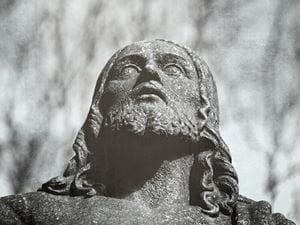
According to the U.S. Census Bureau, inequality is at its highest level in a half-century. The richest 0.1 percent of households own between 15 and 20 percent of U.S. wealth, whereas the bottom half owns just one percent. The COVID-19 pandemic has only made matters worse, sending unemployment numbers soaring. This is only increasing the gap between the haves and the have nots. Inequality is an issue addressed directly in the Bible. If we want to know what Jesus would do about inequality, scripture is the best place to turn to.
Jesus would declare that all are equal in God’s eyes.
First, we should look at God’s view on inequality. God established the equal value of human beings. This is referenced in Genesis 1:27, “So God created man in His own image, in the image of God He created him; male and female He created them.” When God created humans in His likeness, He set our values based on our likeness to Him. There is no human being that is created with more or less value than another human being. Every person is equal in God’s sight. This is counter to what our culture teaches. Galatians 3:28 says, “There is neither Jew nor Greek, there is neither slave nor free, there is no male and female, for you are all one in Christ Jesus.” This verse demolishes all ethnic, racial, social and economic inequalities in that it declares all who believe in Jesus are equal.
Jesus would discourage the accumulation of wealth.
In Matthew 19:23-24, Jesus controversially said that it is easier “for a camel to go through the eye of a needle than for a rich man to enter the kingdom of heaven.” Throughout scripture, Jesus discourages the accumulation of wealth. He worried about the effects it would have on those who accumulated it. He also took great pleasure in helping the poor and disenfranchised. He dedicated His life to them. His heart must have broken when He saw the huge gaps between rich and poor throughout ancient Palestine. The growing income gap is one of the most pressing issues in the United States and before the world. Now, various groups, including the middle class, face an array of problems that create mental and physical pain on a wide scale. Despite all the pressing financial matters most Americans face today, Jesus would want us to place our emphasis on God and helping those around us.
Jesus would have us look at God’s Commandments.
Most of humanity’s inequality is due to the effects of sin. Issues like racism and poverty are all caused by original sin and the world's curse because of it. Romans 8:22-23 says, “For we know that the whole creation has been groaning together in the pains of childbirth until now. And not only the creation, but we ourselves, who have the first fruits of the Spirit, groan inwardly as we wait eagerly for adoption as sons, the redemption of our bodies.” Even during all this, scripture reveals to us that God is still focused on the helpless.
God also expects those who have better circumstances to bear the burdens of those in need. Exodus 22:21-23 says, “You shall not wrong a sojourner or oppress him, for you were sojourners in the land of Egypt. You shall not mistreat any widow or fatherless child. If you do mistreat them, and they cry out to Me, I will surely hear their cry.” God can clearly see the plight of the widow, along with the fatherless. He gives strict commandments to us about caring for the lowly. If we look at one of the first charitable acts of the early church was to provide for the widows in their midst.
Jesus would have us open up the New Testament.
The New Testament is one of the most powerful advocates for equality. Mary, Jesus’ mother, talked about God filling the hungry with good things while sending the rich away empty. In addition, Jesus challenged people to get rid of their possessions and give back to the poor. Jesus also taught that the poor would be raised and the rich brought down in the kingdom. Equality within the church was not only an issue pressing to Jesus but to His followers as well. This was very important to Paul. Second Corinthians 8:13-14 says, “Our desire is not that others might be relieved while you are hard pressed, but that there might be equality. At the present time, your plenty will supply what they need so that in turn, their plenty will supply what you need. The goal is equality.” In First Corinthians, Paul uses the body metaphor to an insight that no social status has importance in the body of Christ. In the 2 Corinthians passage, He charges the church in Corinth to share their resources with a poorer fellowship. Jesus would likely charge us to do the same.
Ultimately, scripture affirms the essential equality of all people and the responsibility of those in positions of wealth and means to help those in need. Jesus knew that it was impossible to rid the world of poverty. In Matthew 26:11, Jesus said, “You will always have the poor among you.” Jesus also said in Luke 6:20, “God blesses you who are poor, for the kingdom of God is yours.” Contrary to what society teaches or pushes, those who are wealthy or of financial means have a responsibility to ensure those in need enjoy the necessities of life.
Thankfully, all inequality will end when Jesus comes again. It will be a majestic scene, with every nation, tongue and tribe surrounding Jesus on His throne. At this time, all our differences will exemplify our own uniqueness and qualities.

